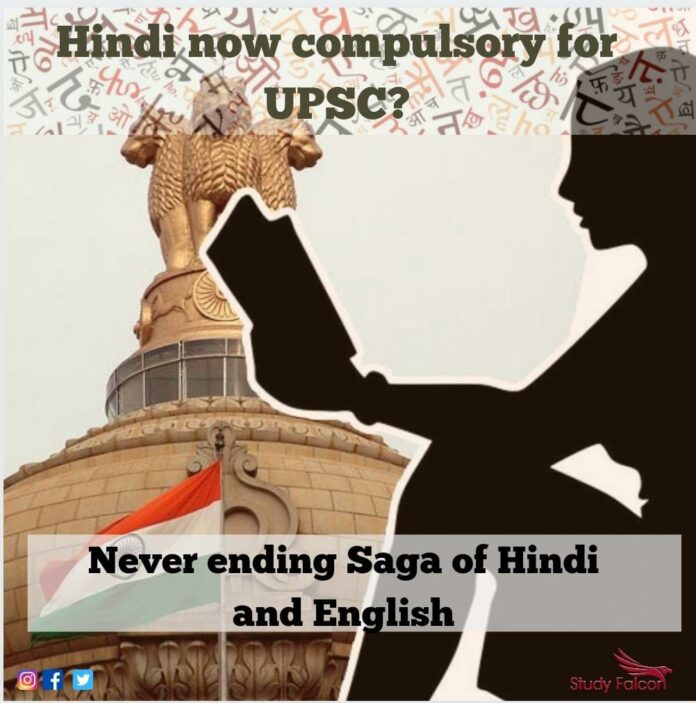Medium of language that one opts for writing their paper is as essential as the preparation itself. UPSC exams are demanding enough but a concern for many is what language to write their exam in and if that would affect their selection process. The problem of language has been present in India for decades. A language foreign to the Indian Nationals now governs most of the services and their daily lives. UPSC examination does allow attempting the paper in regional languages but the question arises is that , if these people are at a disadvantage.
Of the 326 civil servants who took the Foundation Course at the Lal Bahadur Shastri National Academy of Administration (LBSNAA) in 2019, just eight had taken their civil services examination in Hindi, while 315 candidates wrote the exam in English.

In 2016, of the 377 officer trainees, 13 had written the exam in Hindi, and 350 in English. In 2015, of the 350 trainees, 15 had taken the exam in Hindi and 329 in English. In 2014, of the 284 total officer trainees, the number of candidates who had taken the exam in Hindi was six, while that of English candidates was 272.And in the 2019 batch, eight officer trainees had taken their exam in Marathi, three in Tamil, two in Gujarati and one in Telugu.
These statistics suggest that regional languages are under represented. A 2012-batch IAS officer, who wished to remain anonymous. “The system, formally speaking, enables regional and linguistic representation — that is why you have the option of taking the exam in different languages — but when it comes down to actually enabling it, non-English speaking candidates find themselves at a massive disadvantage.”

Last year, the government told Parliament that of the 812 candidates selected by the UPSC in 2019, 485 had chosen Hindi as their mother tongue. Similarly, in 2017, of the 1,056 candidates picked by the commission, 633 had chosen Hindi as mother tongue.However, this paints a “false picture”, argued an Indian Forest Service officer. “Most Indians’ mother tongue will be a regional language, but this does not mean they have not got high-quality English education. “The situation is so bad that it’s better for someone who is not good at English to take English coaching for a year, rather than take the exam in Hindi…That’s what I did even though I was very bad at English,” he said. “You cannot prepare for UPSC, let alone crack it, if you are not an English medium student.”
In 2011, the Centre had introduced the Civil Services Aptitude Test (CSAT) — to evaluate candidates’ comprehension, communication and decision-making skills — to the civil services exam. Given that the exam tested candidates on their English-speaking skills, among other things, the provision triggered massive protests across the country, with the government being forced to make it “qualifying” in nature in 2015. This means while it is necessary to pass this exam with a minimum 33 per cent, the score in this test is not added to the final UPSC marks.

Civil services has yet to free itself from its imperial past . For instance in Indian Forest Services the officers are recruited in far off forest areas and they have to deal with tribal population . Hence English for them would pay no advantage. Zafar Mahmood, a former IAS officer who now runs a civil services coaching center for Muslim and other aspirants from underprivileged communities, however, said there are not enough takers for the regional language provision of the UPSC. There is another issue as well, argued Mahmood. “Most of the preparation material for civil services is in English. There are hardly any books, mock exams, etc. in regional languages. It is at that level itself where the disadvantage starts.”
Education, Coaching, preparation material, all these things add up to the problem of language. UPSC examination board alone cannot solve this issue as it is embedded deep in the circuit of civil examination and its preparation. This does suggest that there is certain disadvantage but deterring from opting the exam in other languages is not an option as greater representation would result in greater attention toward this issue.










